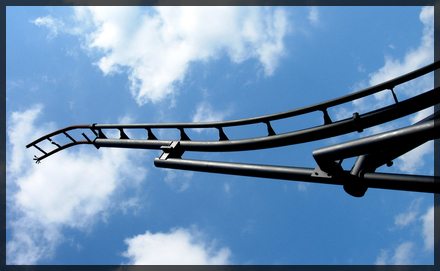The Pure SEO Team
The editorial team at Pure SEO is super proud of our content. Follow our official channels on social media.

There is no doubt that optimising your website is the key to getting seen in the search results, but can you take it too far? Google has recently sent out a series of new messages to various websites regarding a number of ‘unnatural links’ pointing to them, which has stirred up a bit of panic and confusion. Link building plays a main role in SEO, as each link pointing back to your site from a high quality source acts as a vote for your site giving it a richer value according to Google.
This process stems from the idea if quality websites are pointing back to your site; it must mean that what you have to offer must be good and is something that will benefit ‘searchers’. Google doesn’t take lightly to websites that are engaged in dodgy link building practices and the recent release of these ‘link warning’ letters enforce its low tolerance policy.
There have been similar letters released earlier in the year, after the Google Penguin hit the web (fortunately none of our clients have ever received any!). Recipients of these letters where notified that there were a number of ‘unnatural or ‘artificial’ links pointing to their website and they will be seeing drops in their search engine results if they didn’t immediately remove these ‘spammy’ links. While receiving one of these letters significantly lowered Google’s trust in the entire site, there was still a chance for redemption.
Google noted that, “In few situations, we have heard about directories of blog networks that won’t take links down”.
Google acknowledges that in such situations you may not be the website at fault and urges publishers to inform them about such instances in the reconsideration request, spam report or their webmaster forum.
Either way, receiving an old link message stating that Google now potentially distrusts your entire site could cause some serious distress, which is why the new link messages are a nice roll out.
These are for less severe cases in which Google recognises that the site is decent as a whole, but has some questionable links pointing to it. These could be such things as ‘widget bait, paid links, blog spam, guestbook spam, excessive article directory submissions, excessive link exchanges, link spam’ etc.
Even though these warnings are a lot softer than the original link messages, they are still important to address as the ‘unnatural’ links will be disregarded by Google and it is very likely you will drop in search results for any related terms.
So what’s the moral of the story? Don’t engage in dishonest SEO practices. Google is sure to find out and penalise your site in a number of ways harmful to your site’s visibility and reputation. Make sure the links pointing back to your website come from trusted quality websites and are relevant to your pages.
There are many tactics such as honest link building, solid content, keyword selection, Meta Data and more that are supported by Google and can be implemented to get your site to the top of relevant search results.

